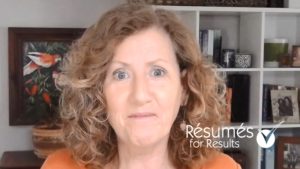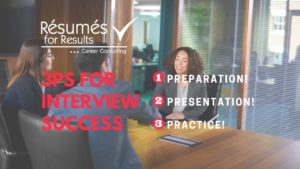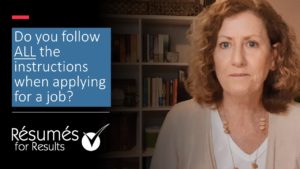Sometimes, candidates forget that the questions they ask are just as important as the answers they give during an interview. Many candidates don’t have any questions at all which is hard to understand when they are being interviewed for a 40+ hour a week job which will have an enormous impact on their day-to-day quality of life.
Why do you need to ask questions during an interview?
- Firstly, you find the answers you need to help you decide whether or not this is the company you want to work for.
- Secondly, the interviewers gain an insight into the person you are which helps them decide if you are right for the job.
That makes these questions pretty important and you don’t want to leave it to the interview to try and think of something ‘off the cuff’. Some spontaneity is important, but you also need to take the time to prepare your most important questions in advance. You will not only find the answers you need, but you will demonstrate to the interviewer that you’ve been thinking long and hard about the company and the role.
So, what should you ask when it’s your turn to question your interviewer? The most important questions will centre on your opportunities for development, the issues you might face in the role, and the expectations of people within the organisation. Here are five really strong questions that will get you useful insights into whether the job is right for you.
Question 1: Can you describe a typical day or week in the job?
It’s important to know how your time will be spent on the job. For example, the job description may have mentioned a combination of admin and program work. So, will the split be 50/50 or will you be spending 90 percent of your time on admin work. Or, you might find out that the one thing that excites you the most about this job only comes up every six months. The answer to this question can help you visualise what it will be like to be in the job day after day.
But what if the interviewer responds with, “Well, that’s hard to say as every day is different.” If that happens, try asking, “Can you tell me what the last week looked like for the person in the job currently? What took up most of their time?” If the answers you get are vague and don’t give you a clear picture of how you will spend your time maybe you will be walking into chaos – or a job where expectations never get clearly defined.
You will learn a lot from the interviewer’s understanding of the position, and the skills and knowledge it requires. The answer to this question will help you formulate a closing statement which can then cover anything that you feel might have been overlooked in formal questioning.
Question 2: Thinking back to people you’ve seen do this work previously, what differentiated the ones who were good from the ones who were really great at it?
This question might be one of the strongest questions you could ask at an interview. Why? Because it goes straight to the heart of what the interviewer is looking for. The interviewer isn’t looking for someone that will do an average job; they want to find someone who will excel at the job. This question shows them that you care about the same thing and that excellence is something you will be aiming for and that you’re conscientious and driven. These are huge things in the interviewer’s eyes. Plus, the answer to this question will give you more subtle insight into what it’ll take to truly excel in the job.
Question 3: What are some challenges faced by employees here, and how might a person in the offered position help resolve them?
The answer to this question will tell you a lot about the culture within the organisation, as well as the way it manages conflict or confusion. For example, you could learn that you’ll have to deal with messy interdepartmental politics, or the person you’ll be working with most closely is difficult to get along with. Maybe budgets will be an issue and you will need to be good at working with limited funds. Asking this question can lead to real discussions on how you approached similar challenges in the past. This can be genuinely useful to you and the interviewer.
Question 4: How will you measure the success of the person in this position?
You might be thinking that the job description already laid this out, but it’s not uncommon for a job description to be the same one an employer has been using for the last ten years, even if the job has changed significantly over time. Companies often post job descriptions that primarily use templates and HR jargon, while the actual manager has very different ideas about what’s most important in the role. So, it’s useful to have a real conversation about what the role is really about.
Asking this question gets right to the crux of what you need to know about the job, what does it mean to do well, and what will you need to achieve in order for the manager to be happy with your performance? You might find out that even though the job description listed 12 different responsibilities, your success really just hinges on two of them. Maybe the importance of one of the responsibilities was dramatically understated, or that the hiring manager is battling with her own boss about expectations for the role, or even that the manager has no idea what success would look like in the job (which would be a sign to proceed with extreme caution).
Question 5: What are the future plans for the company?
When you ask this question you could find out how forward thinking the company is; how confident you can be of job security; and will the plans of the company still fit your values in the future?
There are many questions that may help you find the best job for you, but these five will give you lots to consider. Never ignore the chance to ask questions when the opportunity arises. Your carefully considered questions may be the very thing that wins you the position.
Do you need assistance to prepare for an interview? Contact our Career Consultants at Résumés for Results to discuss how we can assist you with preparing for an interview. Call us TODAY on 1800 155 895 or send us an email to find out more.
If you want to know about the author, Kathryn Burke, click here.
We also provide and specialise in professional resume and cover letter writing, selection criteria writing, interview coaching, LinkedIn profile writing and job search advice.
We offer services across Australia, including all capital cities and regional areas. Our Professional Resume Writers and Career Consultants bring years of experience to the table, with a full range of career services available. Résumés for Results are here to assist you to succeed.





